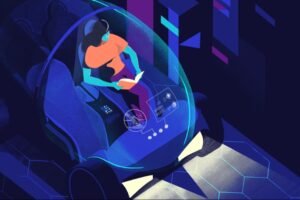According to news sources, scientists have used stem cells to make Synthetic Human Embryos. Surprisingly, these embryos apparently originated from embryonic stem cells, therefore sperm and ova are not necessary for their development.
A novel method for simulating the early stages of life has been developed by scientists at the University of Cambridge using mouse stem cells. These model embryos feature a brain, a beating heart, and the building blocks for all the other bodily parts.
These model embryos, which mirror those in the earliest stages of human development, may offer an important insight into the effects of genetic abnormalities and the molecular factors that contribute to recurrent miscarriage, according to scientists.
Since lab-grown entities are illegal in the UK and most other nations, the development also poses significant ethical and legal concerns.
The structures contain cells that would ordinarily develop into the placenta, yolk sac, and embryo itself but lack a beating heart and the beginnings of a brain.
Mimicking Nature
By directing the three varieties of stem cells that are present in early mammalian development to the stage when they begin interacting, the researchers were able to reproduce natural processes in the laboratory. The scientists were able to persuade the stem cells to “talk” to one another by triggering the expression of a certain set of genes and creating a special environment for their interactions.
According to Robin Lovell-Badge, director of developmental genetics and stem cell biology at the Francis Crick Institute in London:
“The idea is that if you really model normal human embryonic development using stem cells, you can gain an awful lot of information about how we begin development, what can go wrong, without having to use early embryos for research.”
“Constructing” Embryos
The model constructions, which were each developed from a single embryonic stem cell, have begun to undergo gastrulation, a developmental stage in which the embryo changes from being a continuous sheet of cells to generating discrete cell lines and establishing the basic axis of the body.
The model demonstrated the presence of primordial cells, which are the precursor cells of egg and sperm, albeit the embryo at this stage does not yet have a beating heart, a functioning stomach, or the beginnings of a brain.








